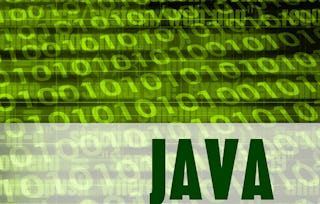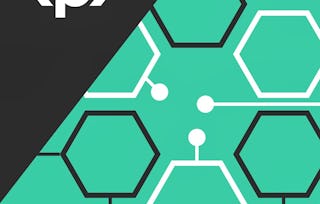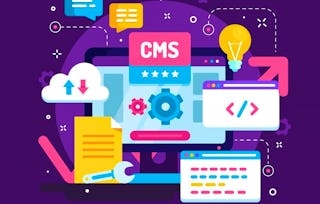Advance your Java skills to the next level with this hands-on journey into enterprise-level development. This Advanced Java Training is built around the skills essential for generating industry requirements and for building scalable, modern applications using standard technologies.

Advanced Java

12 reviews
Recommended experience
What you'll learn
Develop modern web applications with JDBC, Servlets, and JSP using deployment steps and database integration, and servlet lifecycle
Apply core Spring concepts like IoC, AOP, Bean, MVC, and REST to create scalable, modular, enterprise-grade Java applications with ease
Create full projects based on JSP login pages, servlet listeners, PL/SQL transactions, and an MVC-based Library Management System
Leverage Spring Boot for quick application development with CLI, JPA, JPQL, Hibernate, and Spring Data to deliver production-ready applications
Skills you'll gain
Details to know

Add to your LinkedIn profile
22 assignments
See how employees at top companies are mastering in-demand skills

There are 5 modules in this course
This module thoroughly covers Java Database Connectivity (JDBC), from the basics to advanced techniques. By the end of the module, learners will grasp JDBC's architecture and advanced concepts, helping them effectively utilize Java for complex database interactions.
What's included
14 videos1 reading4 assignments
This module covers Servlets extensively, delving into fundamental principles like lifecycle, interfaces, classes, and deployment. By the end of the module, learners will master servlet technology, enabling them to create robust, scalable web applications and utilize advanced features like filters effectively.
What's included
21 videos4 assignments
This module provides learners with a comprehensive understanding of JavaServer Pages (JSP), from fundamental concepts to advanced topics such as its elements, directives, implicit objects, and tags. By the end of the module, learners will be proficient in developing dynamic, feature-rich web applications using JSP.
What's included
13 videos3 assignments
This module looks into the Spring framework, going over the core principles like Inversion of Control (IoC), Aspect-Oriented Programming (AOP), Spring Bean, Spring MVC framework, and RESTful services. By the end of the module, learners will master these concepts and be able to develop robust, scalable applications using Spring and RESTful principles.
What's included
29 videos6 assignments
The final module delves into Spring Boot, covering its architecture, command line interpretation, Spring JDBC, JPQL, JPA, Hibernate, and Spring Data. By the end of the module, learners will be proficient in utilizing Spring Boot for efficient application development and performance optimization.
What's included
20 videos1 reading5 assignments
Instructor

Offered by
Explore more from Software Development
 Status: Preview
Status: PreviewLearnQuest
 Status: Preview
Status: Preview Status: Free Trial
Status: Free Trial Status: Free Trial
Status: Free Trial
Why people choose Coursera for their career

Felipe M.

Jennifer J.

Larry W.

Chaitanya A.
Learner reviews
- 5 stars
41.66%
- 4 stars
33.33%
- 3 stars
0%
- 2 stars
8.33%
- 1 star
16.66%
Showing 3 of 12
Reviewed on Feb 19, 2025
course is good but you are not provide my completed cirtificate why

Open new doors with Coursera Plus
Unlimited access to 10,000+ world-class courses, hands-on projects, and job-ready certificate programs - all included in your subscription
Advance your career with an online degree
Earn a degree from world-class universities - 100% online
Join over 3,400 global companies that choose Coursera for Business
Upskill your employees to excel in the digital economy
Frequently asked questions
This course is ideal for experienced Java developers looking to enhance their proficiency in advanced Java topics such as multithreading, networking, database connectivity, and more.
The prerequisites include learners having an in-depth knowledge of core Java concepts like data structures, object-oriented programming, and basic I/O operations.
Web services, database connectivity, JSP, Servlets, EJB, and other subjects are the major topics covered in Advanced Java course.
More questions
Financial aid available,

